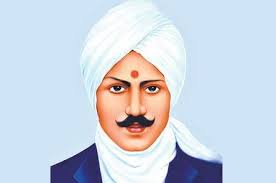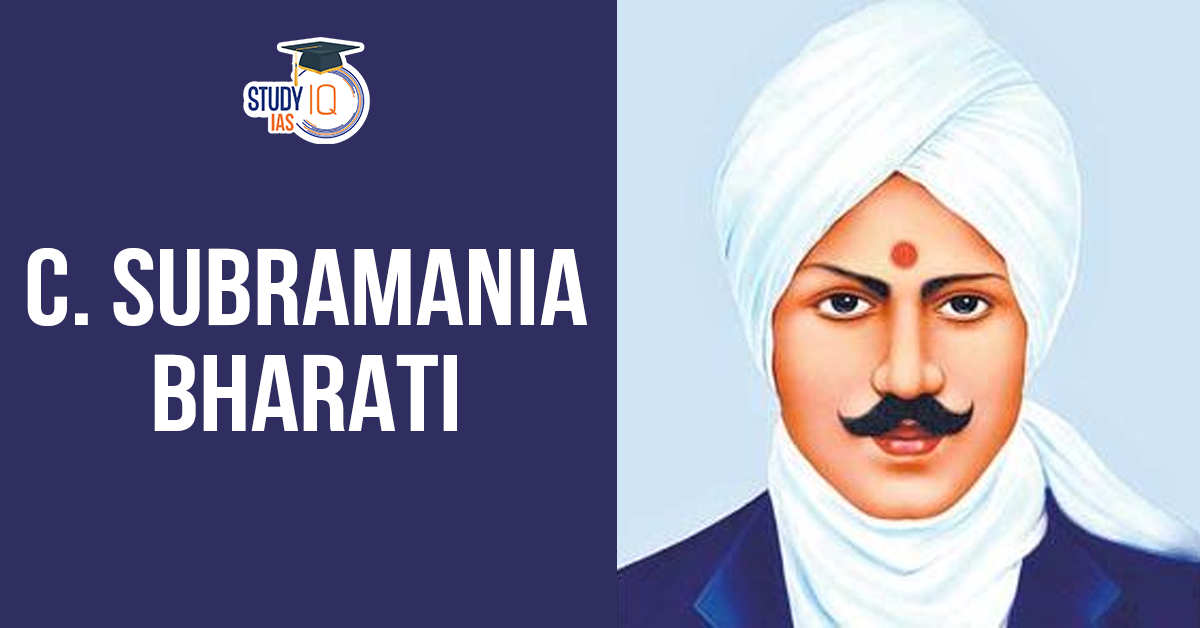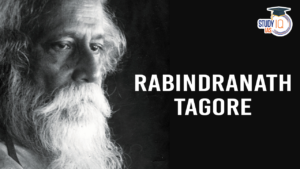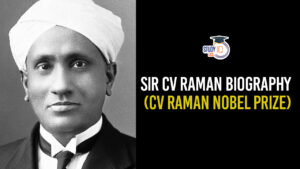Table of Contents
C. Subramania Bharati (1882–1921), popularly known as Mahakavi Bharathiyar, was a poet, freedom fighter, and social reformer from Tamil Nadu. His literary genius and fervent patriotism made him one of India’s greatest poets and a significant figure in the Indian Independence Movement.

Early Life and Education
- Born in Ettayapuram, Tamil Nadu, in 1882, Bharati displayed extraordinary poetic talent from an early age.
- He earned the title “Mahakavi” (Great Poet) for his unmatched literary prowess.
Contribution to Indian Independence
Bharati’s songs and writings played a pivotal role in inspiring the masses in Tamil Nadu to join the freedom struggle. His works were a blend of nationalism, spirituality, and social reform, leaving an indelible mark on the movement.
Key Milestones in His Career:
- Swadesamitran: Bharati began his journalistic career in 1904 as the Assistant Editor of this Tamil daily, where he voiced nationalist ideas.
- Founding Editor: In 1907, he started editing the Tamil weekly India and the English newspaper Bala Bharatham, along with M.P.T. Acharya.
- Collaboration with Aurobindo: During his time in Pondicherry, Bharati assisted Sri Aurobindo in editing the Arya journal and contributed to the Karma Yogi.
Exile and Later Years
In 1908, Bharati was forced into exile by the British authorities and moved to Pondicherry, a French colony. He spent a decade there, continuing his writings and activism. Despite challenges, his time in exile was prolific, producing some of his finest works.
- Returned to Madras (Chennai) in later years.
- Passed away in 1921 in Madras, leaving a legacy of timeless literature and patriotic fervor.
Literary Contributions
Bharati’s works are celebrated for their linguistic beauty, depth, and revolutionary ideas.
Best-Known Works
- Kaṇṇan Pattu (1917; Songs to Krishna): A poetic ode to Lord Krishna, blending devotion and human emotions.
- Panchali Sapatham (1912; Panchali’s Vow): A retelling of the Draupadi episode from the Mahabharata, symbolizing the struggle against oppression.
- Kuyil Pattu (1912; Kuyil’s Song): A lyrical masterpiece reflecting his admiration for nature.
Translations
Bharati also translated significant spiritual and philosophical texts into Tamil:
- Vedic Hymns
- Patanjali’s Yoga Sutras
- Bhagavad Gita
Social Reforms
Bharati was ahead of his time, advocating for:
- Women’s Empowerment: Called for education and equal rights for women.
- Abolition of Caste System: Championed social equality and unity.
- Universal Brotherhood: Promoted harmony across religions and cultures.
Legacy
Bharati’s works continue to inspire millions. His vision of a free and egalitarian India resonates deeply, making him an enduring symbol of patriotism and reform.


 Rabindranath Tagore Biography: Life, Ach...
Rabindranath Tagore Biography: Life, Ach...
 Jayshree Vencatesan First Indian to win ...
Jayshree Vencatesan First Indian to win ...
 Sir CV Raman Biography, Awarded Nobel Pr...
Sir CV Raman Biography, Awarded Nobel Pr...





















